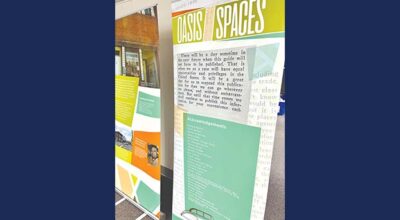The true first responders: National Public Safety Telecommunicators Week
Published 9:36 pm Tuesday, April 15, 2014
“Thank you to the most important people you will never see.”
Those words are the first thing one sees on the North Carolina 911 Board’s website. They refer to the state’s thousands of 911 telecommunicators and the fact that this week is National Public Safety Telecommunicators Week, recognition for those voices on the other end of the line that one only hears in times of emergency.
“They are the true first responders. They are the vital link between the community and emergency services,” said Maj. Kenneth Watson, spokesman for the Beaufort County Sheriff’s Office.
In the state of North Carolina, those first responders answered 6.9 million 911 calls in 2013. Last month alone, 600,000 calls were made to 911 call centers statewide.
The Washington Police Department has a staff of six telecommunicators who work rotating 12-hour shifts: 6 a.m. to 6 p.m., 6 p.m. to 6 a.m., with an extra person on duty during the peak hours of noon to midnight. All 911 calls made in the county go through the 12 telecommunicators on staff with Beaufort County Sheriff’s Office, and during their busiest times (4 p.m. to 8 p.m.) the two people on shift are answering anywhere between 150 to 250 phone calls.
The job is not an easy one, according to law enforcement officials. In the space of seconds, telecommunicators have to figure out what’s happening, where it’s happening, when it happened, how it happened, what agency needs to respond and if they’ll be in any danger once they get there.
“They’re the first point of contact,” said Lt. William Chrismon, spokesman for the Washington Police Department. “They give you the help you need, whether it’s the fire department, police or any other service we offer. They are also police officers’ and firefighters’ lifelines should they need help or assistance.”
According to Washington Police and Fire Services Director Stacy Drakeford, telecommunicators have to have a unique skillset to be proficient at their jobs: they must have patience and compassion and have superior listening skills, in addition to being fast on their feet. They are part social worker and part moderator, he said.
Watson said telecommunicators should be referred to as the unsung heroes of public safety: during their 12-hour shifts, confined to a small room with phones and computers, they have to be ready for any call that comes in.
“They may get a call from a parent whose child is hurt and have to deal with the emotions and frustrations that come along with the call. Or they may get a call from a disoriented person, who can’t answer questions,” Watson said. “They’re responsible for sifting through that information and passing those details on pretty quickly, so we can get help to the caller.”
Because they are the voice on the line, and an in-between point from emergency to rescue, their role in helping save lives is rarely recognized by the general public, though it is definitely appreciated by those who work in public safety, according to the officials interviewed.
“If you know one, I’d tell them thank you, because they do a difficult job with very little acknowledgment for their service,” Watson said.





